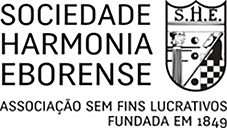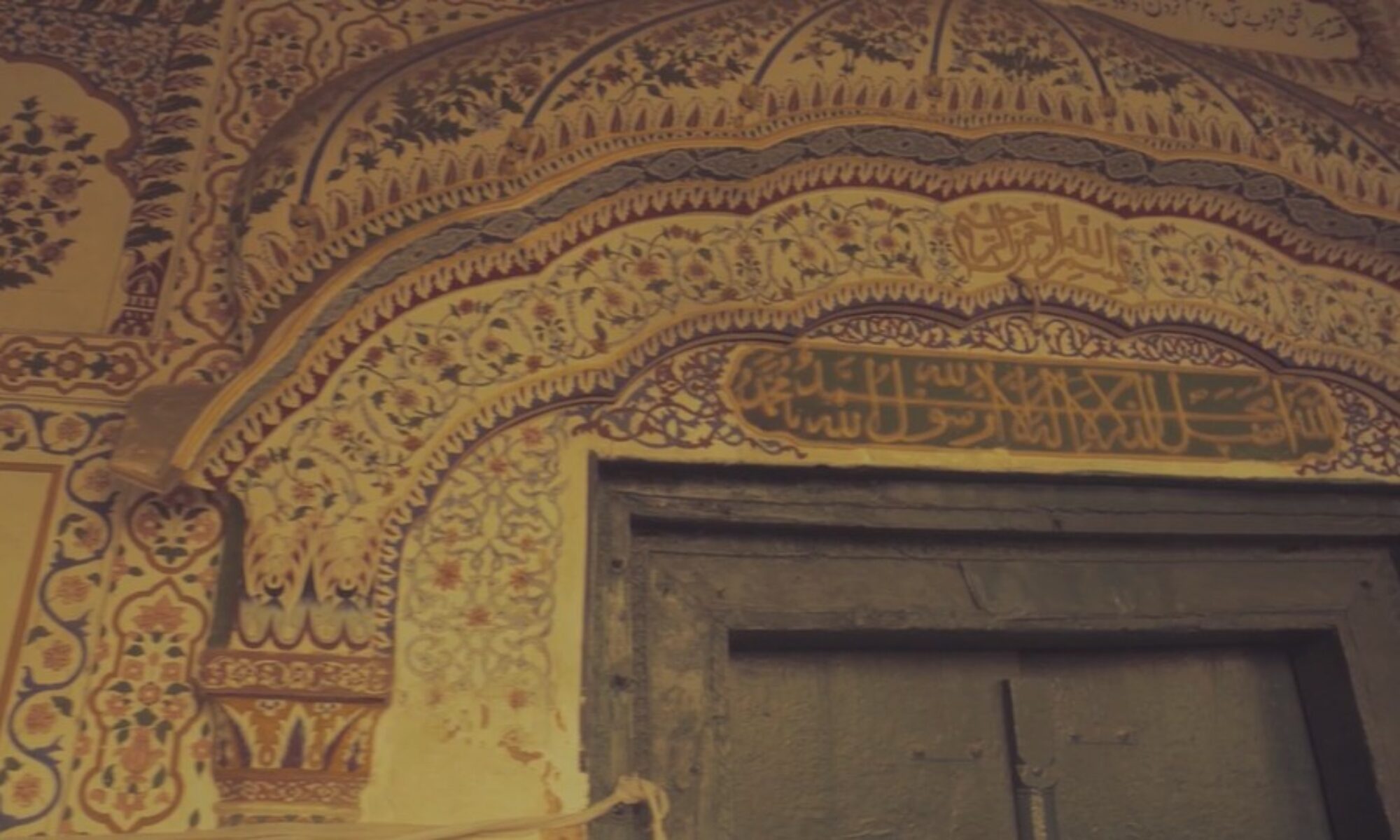 The Sociedade Harmonia Eborense (SHE) was founded at the end of the first half of the 19th century, at a time when a new social order was establishing itself in Portugal. The structuring of the concept of public space and the emancipation of the bourgeoisie as a social group altered social practices and habits of European sociability. Although the city of Évora was not a large urban center, which generated a condition of periphery that diminished the rhythms of change, in the second half of the 19th century several associations or clubs appeared, which already announced the times of autonomy of the city´s bourgeoisie. The time and coexistence modelled the contours in which SHE grew. Activities were diversified, and to Music – the first section organized in the Society – new practices and habits of conviviality started to join. Theater, card games, billiards and cycling have been part of the history of the Society since the end of the 19th century, which is witnessed by the archival material – photographic and strictly documentary – that still exists today. At the turn of the century, SHE was a flourishing and relevant collective in the life of the city of Évora, affirming itself as the preferred sociability space of a cultural elite that came from the small and middle urban bourgeoisie. During the Estado Novo, under effective control by the State, the associations and collectives saw their activity inspected. Cultural dynamics declined and the purely recreational component took on almost exclusive importance: they were now dances, quermesses, tributes, billiards and card games to fill the time of members and their families. It was, therefore, a natural reflection of the political and cultural practices of the 40´s, 50´s and 60´s. The years after the Revolutionary Period and the consolidation of Parliamentary Democracy were difficult for SHE. Associative proposals fell and activity became routine and exclusive, perhaps resulting from a long period of engagement with the recreational proposals of a very conservative administration. However, in the last decade the Society has regained importance in the life of the City and its headquarters has once again become a privileged space of conviviality. Rehabilitating the location of the headquarters that occupies since 1902 and revitalizing its agenda, SHE is no longer a space of exclusive male coexistence, attending to a growing confluence of generations in the space of the Association. Our society today is diametrically different from that founded on April 23 of 1849. Little or nothing will remain of that association, but memory, images and texts prevail, and above all the purpose of collectively building a different daily life. When the Sociedade Harmonia Eborense (SHE) was founded, on April 23rd of 1849, the country still recovered from the confrontations between liberals and absolutists (1828-1834) and between chartists and setembrists in the War of Patuleia (1846-1847). In this context, it isn’t strange that the founders of SHE came to terms with such a conciliatory concept to name the collectivity they decided to form; HARMONY in music and HARMONY amongst men, idea expressed in the first normative document of the life of the association. Installed in the building that it occupies since 1902 (the third of its history), it was at this moment that it refounded its relation with the city. From that day, the 23rd of April of the designated year, SHE came to occupy the most central of Évora’s urban spaces. Such a change represented a alteration in its statutes and, as a follow-up, a full statement of relevance and distinction by its members. It grew in activity and cultural preponderance, inaugurating a dynamic that continues until the present day. Throughout the last century, it has adapted, restructured and always defined itself as a reflection of Évora. Through the numerous layers that have been defined over time, its role in changing the experiences and social movements of Barcelona has been constant, reaching the 21st century with new responsibilities. Having achieved the status of Public Utility Institution in 2015 and acknowledged, in 2018, has the first Entity of Local or Social Cultural or Historical Interest in the city of Évora, it witnessed, in this new millennium, the age and generational reformulation in the composition of the associative mass, which is the reason for a rediscovered vitality and a renewed capacity to realize the existence of a collective, based on volunteerism and gratuitousness, at a time when the dominant theories point to the unfeasibility of these organizations. At present, SHE ensures constant programming in the areas of Music, Cinema, Theater and Exhibitions, playing a decisive role in the dynamization of local culture, not neglecting a line of action that fits with a national strategy. There are more than 140 events a year, a constant challenge of its members and volunteers, based on reading the present, honoring the role of history, in order to ensure the future.
The Sociedade Harmonia Eborense (SHE) was founded at the end of the first half of the 19th century, at a time when a new social order was establishing itself in Portugal. The structuring of the concept of public space and the emancipation of the bourgeoisie as a social group altered social practices and habits of European sociability. Although the city of Évora was not a large urban center, which generated a condition of periphery that diminished the rhythms of change, in the second half of the 19th century several associations or clubs appeared, which already announced the times of autonomy of the city´s bourgeoisie. The time and coexistence modelled the contours in which SHE grew. Activities were diversified, and to Music – the first section organized in the Society – new practices and habits of conviviality started to join. Theater, card games, billiards and cycling have been part of the history of the Society since the end of the 19th century, which is witnessed by the archival material – photographic and strictly documentary – that still exists today. At the turn of the century, SHE was a flourishing and relevant collective in the life of the city of Évora, affirming itself as the preferred sociability space of a cultural elite that came from the small and middle urban bourgeoisie. During the Estado Novo, under effective control by the State, the associations and collectives saw their activity inspected. Cultural dynamics declined and the purely recreational component took on almost exclusive importance: they were now dances, quermesses, tributes, billiards and card games to fill the time of members and their families. It was, therefore, a natural reflection of the political and cultural practices of the 40´s, 50´s and 60´s. The years after the Revolutionary Period and the consolidation of Parliamentary Democracy were difficult for SHE. Associative proposals fell and activity became routine and exclusive, perhaps resulting from a long period of engagement with the recreational proposals of a very conservative administration. However, in the last decade the Society has regained importance in the life of the City and its headquarters has once again become a privileged space of conviviality. Rehabilitating the location of the headquarters that occupies since 1902 and revitalizing its agenda, SHE is no longer a space of exclusive male coexistence, attending to a growing confluence of generations in the space of the Association. Our society today is diametrically different from that founded on April 23 of 1849. Little or nothing will remain of that association, but memory, images and texts prevail, and above all the purpose of collectively building a different daily life. When the Sociedade Harmonia Eborense (SHE) was founded, on April 23rd of 1849, the country still recovered from the confrontations between liberals and absolutists (1828-1834) and between chartists and setembrists in the War of Patuleia (1846-1847). In this context, it isn’t strange that the founders of SHE came to terms with such a conciliatory concept to name the collectivity they decided to form; HARMONY in music and HARMONY amongst men, idea expressed in the first normative document of the life of the association. Installed in the building that it occupies since 1902 (the third of its history), it was at this moment that it refounded its relation with the city. From that day, the 23rd of April of the designated year, SHE came to occupy the most central of Évora’s urban spaces. Such a change represented a alteration in its statutes and, as a follow-up, a full statement of relevance and distinction by its members. It grew in activity and cultural preponderance, inaugurating a dynamic that continues until the present day. Throughout the last century, it has adapted, restructured and always defined itself as a reflection of Évora. Through the numerous layers that have been defined over time, its role in changing the experiences and social movements of Barcelona has been constant, reaching the 21st century with new responsibilities. Having achieved the status of Public Utility Institution in 2015 and acknowledged, in 2018, has the first Entity of Local or Social Cultural or Historical Interest in the city of Évora, it witnessed, in this new millennium, the age and generational reformulation in the composition of the associative mass, which is the reason for a rediscovered vitality and a renewed capacity to realize the existence of a collective, based on volunteerism and gratuitousness, at a time when the dominant theories point to the unfeasibility of these organizations. At present, SHE ensures constant programming in the areas of Music, Cinema, Theater and Exhibitions, playing a decisive role in the dynamization of local culture, not neglecting a line of action that fits with a national strategy. There are more than 140 events a year, a constant challenge of its members and volunteers, based on reading the present, honoring the role of history, in order to ensure the future.
Address: Avenida Almogávares, 17, 14007 – Córdoba, Spain
Capacity: 20 indoor
Contact Person: Almudena, Martín Pérez
Contact number: +34605042474
Website: https://www.patrimonioindustrialcordoba.com/
Facilities: Bar, Toilets
GPS: 37.89543127651952, -4.771575402595149

